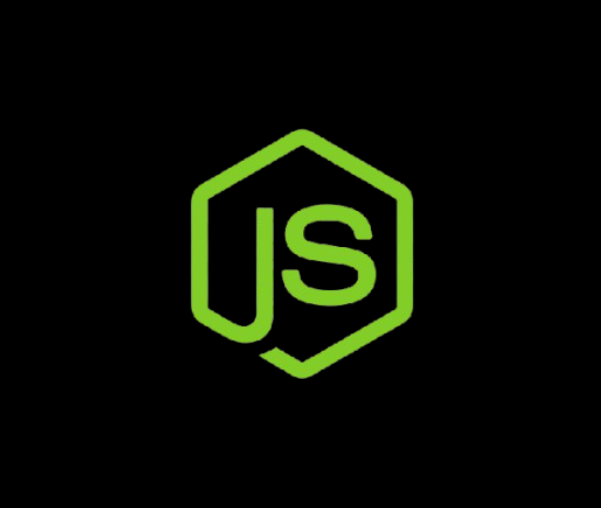
What is Node.js? Learn Everything About It
Here are some word of what i node js Node.js is an open-source, cross-platform JavaScript runtime environment that enables developers to execute JavaScript code outside of a web browser. It is built on Google Chrome’s V8 JavaScript engine, allowing it to handle server-side operations efficiently. Node.js is widely used for building scalable and high-performance applications, particularly for web servers, APIs, real-time applications, and microservices.
History and Evolution of What is Node.js
Node.js was created by Ryan Dahl in 2009 when he sought to improve the performance and scalability of web applications. Before Node.js, JavaScript was primarily used for front-end development in web browsers. However, with the advent of Node.js, developers could write JavaScript code for both client-side and server-side applications, leading to a more unified development environment.
Key Milestones in Node.js Development:
- 2009 – Node.js was introduced with event-driven programming and non-blocking I/O.
- 2010 – npm (Node Package Manager) was introduced to manage packages.
- 2011-2012 – Node.js gained popularity, with major companies like LinkedIn and Walmart adopting it.
- 2015 – Node.js Foundation was formed, and the first Long-Term Support (LTS) release was introduced.
- 2020+ – Regular updates continue to enhance performance, security, and support for modern JavaScript features.
Node.js Architecture
Node.js follows an event-driven, non-blocking I/O model, making it lightweight and highly efficient. It utilizes the following components:
1. Single-Threaded Event Loop
Unlike traditional multi-threaded servers that handle each request with a new thread, Node.js operates on a single thread. However, it efficiently manages multiple requests using an event loop, avoiding unnecessary thread creation and context switching.
2. Non-Blocking I/O
Node.js uses asynchronous, non-blocking input/output operations, meaning it doesn’t wait for a request to complete before moving to the next one. This significantly boosts performance, especially for applications with high I/O operations.
3. V8 JavaScript Engine
Node.js is powered by Google’s V8 engine, the same engine that runs JavaScript in Google Chrome. It compiles JavaScript code into machine code, ensuring fast execution.
4. Libuv
Libuv is a library that provides cross-platform support for asynchronous I/O, handling file system operations, networking, and concurrency.
5. Callback Functions & Promises
Node.js relies on callbacks and promises to handle asynchronous tasks, preventing code execution from blocking.
Features of Node.js
Node.js is widely adopted due to its powerful features, which include:
1. Asynchronous & Non-Blocking
Node.js processes multiple requests without waiting for previous ones to complete, making it highly efficient for web applications.
2. Fast Execution
The V8 engine compiles JavaScript to native machine code, ensuring high-speed execution.
3. Scalability
Node.js is ideal for scalable applications due to its event-driven architecture.
4. Cross-Platform
Node.js runs on Windows, Linux, and macOS, making it a versatile choice for developers.
5. Large Ecosystem (npm)
npm (Node Package Manager) provides thousands of open-source libraries to extend Node.js functionality.
6. Microservices & API Development
Node.js is commonly used for building RESTful APIs and microservices, making it ideal for modern web applications.
7. Real-Time Applications
Node.js excels at real-time applications, such as chat apps, gaming platforms, and live-streaming services.
Use Cases of Node.js
Node.js is used in various domains, including:
1. Web Servers
Many companies use Node.js to power their web servers due to its fast and scalable nature.
2. Real-Time Applications
Applications requiring real-time data updates, such as chat apps (WhatsApp, Slack) and collaborative tools (Google Docs), benefit from Node.js.
3. APIs and Microservices
Node.js is commonly used to build RESTful APIs and Node.Js APIs, allowing seamless communication between frontend and backend.
4. IoT (Internet of Things)
Node.js is lightweight, making it ideal for IoT devices that require real-time data handling.
5. Streaming Applications
Node.js handles data streaming efficiently, making it a great choice for services like Netflix and YouTube.
6. Server less Computing
Cloud platforms like AWS Lambda and Google Cloud Functions support Node.js for server less applications.
Popular Companies Using Node.js
Several major companies use Node.js for high-performance applications, including:
- Netflix – For fast streaming and efficient microservices.
- LinkedIn – For handling large-scale connections.
- PayPal – Improved performance and response time.
- Uber – Real-time tracking and request handling.
- eBay – Scalability and efficient request processing.
Node.js vs Other Backend Technologies
Here’s how Node.js compares to other backend technologies:
Getting Started with Node.js
To start using Node.js, follow these steps:
1. Install Node.js
Download and install Node.js from https://nodejs.org/.





When someone writes an article he/she maintains the plan of a user
in his/her mind that how a user can understand it. Therefore that’s why this post is
outstdanding. Thanks!
You really make it seem so easy with your presentation but I find
this topic to be really something that I think I would never understand.
It seems too complicated and very broad for me. I am looking forward for your
next post, I will try to get the hang of it!
Spot on with this write-up, I actually feel this web site needs far more
attention. I’ll probably be returning to read through more,
thanks for the advice!
With havin so much written content do you ever run into any
problems of plagorism or copyright infringement?
My site has a lot of exclusive content I’ve either created myself or outsourced but
it appears a lot of it is popping it up all over the web without my
authorization. Do you know any ways to help protect against content from being
ripped off? I’d genuinely appreciate it.
Wonderful post but I was wanting to know if you could write a litte more on this topic?
I’d be very grateful if you could elaborate a little bit further.
Appreciate it!
If you would like to grow your familiarity only keep visiting this web page and be updated with the hottest news update
posted here.
Thanks for ones marvelous posting! I actually enjoyed reading it,
you will be a great author. I will always bookmark your blog and may come back
very soon. I want to encourage continue your great
writing, have a nice afternoon!
Informative article, totally what I needed.
I like what you guys are usually up too. This sort of clever
work and exposure! Keep up the great works guys I’ve incorporated you guys to my own blogroll.
What i do not realize is in truth how you’re now not really a lot more well-appreciated than you might
be now. You’re so intelligent. You know therefore considerably in the case of this matter, made
me individually consider it from numerous varied angles. Its like men and
women aren’t involved unless it’s something to do with Girl gaga!
Your own stuffs outstanding. At all times maintain it
up!
Hello, just wanted to tell you, I enjoyed this blog post.
It was helpful. Keep on posting!
With havin so much content do you ever run into
any problems of plagorism or copyright infringement? My
website has a lot of unique content I’ve either written myself or outsourced but it appears
a lot of it is popping it up all over the web without my agreement.
Do you know any ways to help reduce content from being stolen? I’d really appreciate it.
Just want to say your article is as astounding. The clarity in your post is simply
spectacular and i can assume you’re an expert
on this subject. Fine with your permission let me to grab your feed to keep up
to date with forthcoming post. Thanks a million and please
continue the enjoyable work.